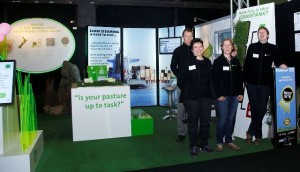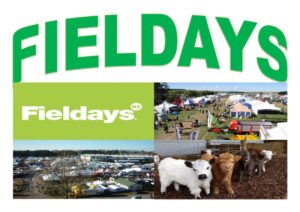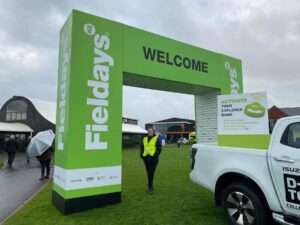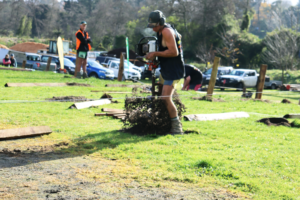AgResearch’s free meat a winner
AgResearch has won Best Premier Feature site at the Fieldays – maybe because of the smell of beef that greeted visitors as they entered the stand.
The AgResearch stand at Fieldays 2013 is a thriving hub of opportunities to learn about the many ways the organisation is transforming agriculture.

Their stand was awarded Best Premier Feature site this year.
AgResearch Senior communication advisor Stephen Doran said they were stoked with the win. “I think the stand is channelling our inner three-year-old, with lots of things you can pick up, and look at.
“But I think the real winner is the free meat.”
The smell of rotisserie-cooked Waikato grass-fed beef greets visitors as they enter the stand.
The beef samples being offered are one of AgResearch’s value-added products.
Scientists started with low quality beef that was bred for dairy and would usually be used for something like stewing steak.
A spice rub of New Zealand indigenous herbs and an understanding of meat and culinary science has turned the low quality product into a value-added product.
“It’s all natural, no funny chemicals or false additives,” Doran said, and he described it as “incredibly tasty and incredibly tender”.
Waiuku lifestyle builder Garry Renall was caught going back for more. “I’m taking it home,” he said. “Me and my friend we’re going home,” he laughs and points to the man holding the tray of beef slices. “It’s bloody beautiful.”
AgResearch Chief Executive Dr Tom Richardson said the theme of the stand is ‘Creating a Future Premium for New Zealand’s Exports’ and they were showcasing AgResearch science on farm, off farm and in retail.
“This fits in well with the Fieldays theme of ‘Getting Down to Business in the Global Economy’,” he said.
Off the farm, AgResearch have developed technologies to help protect ‘Brand New Zealand’ both in New Zealand and overseas markets.
By slowing down the speed of ships exporting meat from New Zealand, smart technology can be used to turn the longer boat trip into an opportunity to properly age the meat for increased quality.
AgResearch Senior Communications Advisor Stephen Doran said “The slower speed also saves fuel and reduces CO2 emissions.”
He said the technology “beats the tyranny of distance”.
“It’s looking at microbiology, controlling the temperature on board, so the product is as close to perfect as possible when it gets there.”




